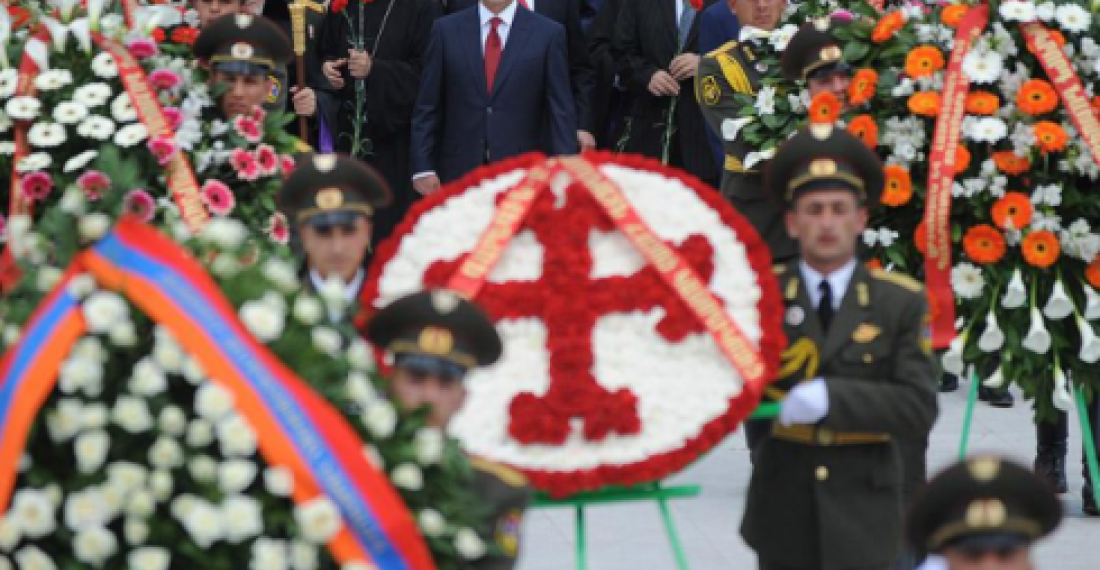Лидер Армении, Серж Саргсян, посетил вчера Нагорный-Карабах для поднятия боевого духа в регионе после недавних инцидентов на линии соприкосновения, разделяющей армянские и азербайджанские силы. Глава государства также посетил город Шуша, который, как говорят армяне, они освободили в 1992 году, а азербайджанцы утверждают об оккупации этого города.
Президента сопровождали во время его визита Католикос всех армян, Гарегин II, и президент самопровозглашенной Нагорно-Карабахской Республики (НКР), Бако Саакян.
На сайте президента Армении сказано, что визит был совершен "в рамках торжеств, посвященных Дню Победы, Армии обороны НКР и 20-летию освобождения Шуши".
В то же время в понедельник, в Баку, открылась художественная и фото выставка под названием "Шуша - жемчужина истории и культуры Азербайджана". Согласно подписанному Президентом Ильхамом Алиевым указу, в связи с 20-летием со дня оккупации Шуши во всех культурных центрах Азербайджана проводятся мероприятия, сказал выступавший на открытии выставки в Музейном центре министр культуры и туризма Абульфас Гараев. "Шуша, которая была заложена в 1747 году, всегда была городом Азербайджана, и так будет всегда. Шуша является консерваторией Азербайджана", сказал он.
Шуша занимает свое место в истории Азербайджана, сказал на мероприятии председатель Общественного объединения "Азербайджанская община Нагорного Карабаха", глава исполнительной власти Шушинского района Байрам Сафаров."На сегодняшний день армия Азербайджана готова освободить Шушу, но азербайджанская сторона пытается вернуть оккупированные земли мирным путем. Если не получится, Шуша и другие оккупированные земли будут возвращены любыми путями", - сказал он.
В то же время, в течение нескольких часов после вступления в должность президент России, Владимир Путин, подписал распоряжение "О мерах по реализации внешнеполитического курса". По данным администрации президента России "Распоряжение принято в целях реализации согласованной внешней политики Российской Феддерации, будет защищать национальные интересы на основе принципов прагматизма, открытости и многовекторности в условиях формирования новой полицентричной системы международных отношений".
По Нагорному-Карабаху Распоряжение дает инструкции по "урегулированию нагорно-карабахского конфликта в сотрудничестве с другими странами-сопредседателями Минской группы ОБСЕ, и основано на принципах, изложенных в совместных заявлениях президента России, президента Соединенных Штатов Америки и Президента Франции, сделанных между 2009 и 2011 годами".
Источник: commonspace.eu
Фото: Президент Армении, Серж Саргсян, возложил венок по случаю Дня Победы во время своего визита в Нагорный Карабах 8 мая. (фото любезно предоставлено пресс-службой президента Армении).
Commentary
Армяне отмечают 20-летие освобождения Шуши, а азербайджанцы отмечают годовщину оккупации.







